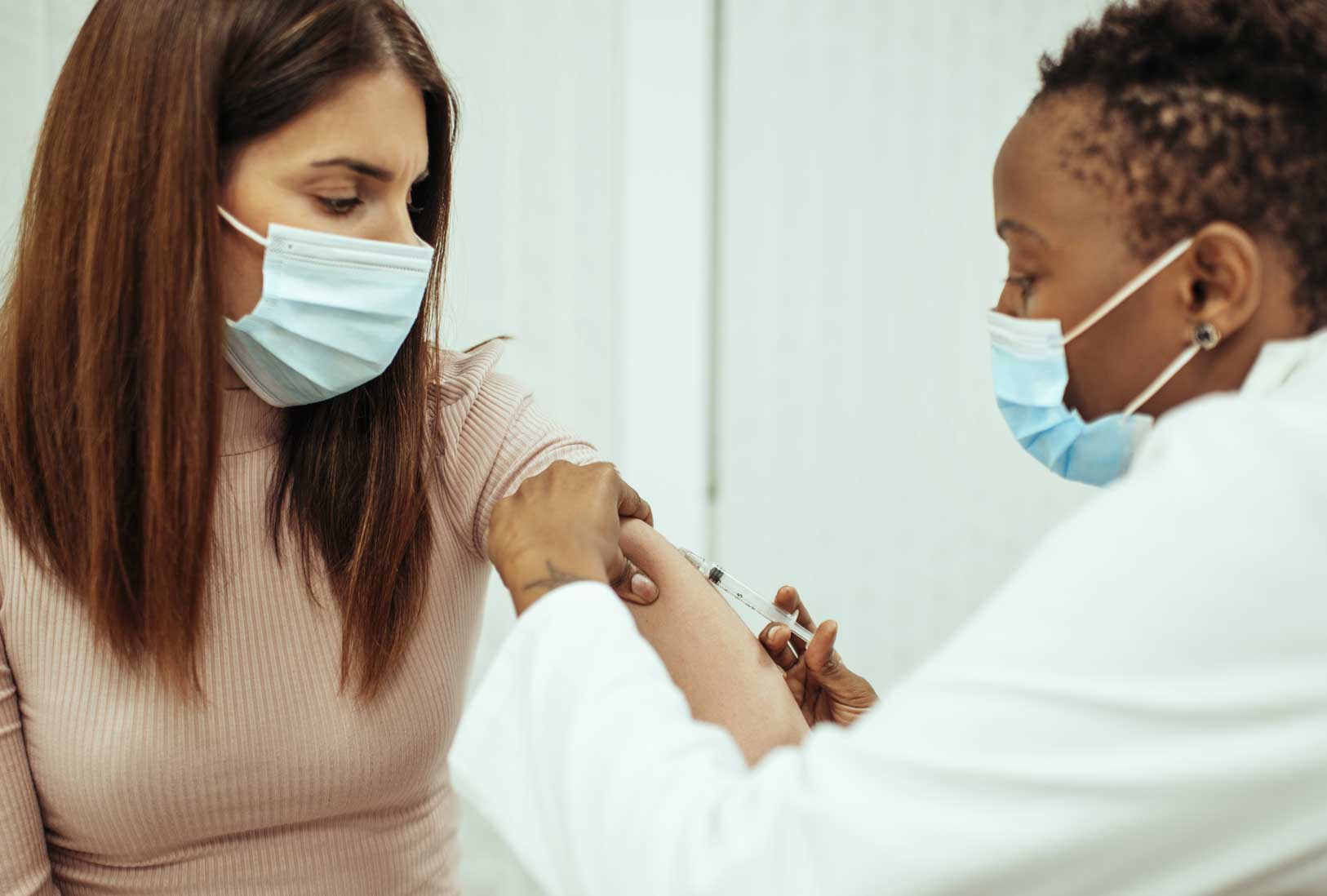

Preventing disease protects you and your community
You take care of yourself and you eat a balanced diet. But are you up to date on your vaccines? Even as an adult, health screenings and shots are just as important as exercise in helping you stay healthy. Why?
- Immunity from your childhood vaccines can fade over time. You might need a booster shot.
- Newer vaccines can help protect against things like chickenpox and the virus that causes cervical cancer.
- You may have missed some of your shots when you were a kid. Getting childhood illnesses as an adult can be even harder on your body.
The good news is that it isn’t too late to catch up. Not only will you protect yourself and your family, but you could help to stop the spread of illness worldwide. And that’s a battle worth fighting.
How vaccines work with your immune system
When you’re sick, your body's immune system kicks in to fight off germs.1 Your immune system has a memory. It remembers what you've been exposed to before to help protect you the next time around. Some germs are so strong that they can overwhelm the immune system. That's where vaccines come into play. Because the germs in vaccines have been weakened or killed, they don’t cause an illness. But they do cause your body to build up immunity. That helps you fight off the germs better.1 Vaccine-preventable diseases can be deadly without the vaccine’s boost to your immune system.
Before we had vaccines, the only way to become immune to an illness was to get the illness. That could be serious — or even deadly. Being vaccinated is a way to build up immunity with less risk.1
Why get vaccines?
When too few get immunized for a disease, it can still infect a large number of people. Even though many serious diseases are no longer common in the U.S., this isn’t true everywhere in the world. One person catching a disease, like measles, could lead to a whole community becoming infected, if most people in that community aren't immunized.2
Are vaccines safe?
Some parents worry about vaccines. They question whether the benefits of getting a vaccine outweigh the risks of getting an illness — especially if they think their child’s chances of getting that illness are low.
All medicines carry the risk of side effects, and vaccines are no exception. As with all drugs, no vaccine is 100% effective or safe. However, vaccines go through lots of testing, and they're licensed by the U.S. Food and Drug Administration before they're used in this country.3 For details about safety and testing, go to cdc.gov/vaccines.
Helpful resources
To find out more, visit the Centers for Disease Control and Prevention (CDC) website at cdc.gov/vaccines. You can see immunization schedules, answers to common questions and more. Or you can call the CDC Information Contact Center at 1-800-CDC-INFO (232-4636).
Take a shot for good health. Schedule your checkup today!
Sources

